Building Success: How Mason Bean is Laying Foundations for a Career in Construction Management
December 11th, 2024
For the past few months, we've been searching our schools for students to highlight for their work...
The teachers and specialists in Provo City School District are our innovators. They are innovators, companions, and caretakers; they are the brick-and-mortar that founds learning in our community. The Provo City School District Foundation wants to recognize and support its efforts to make our schools a better place.
Each year, the Foundation awards ten mini-grants to a few of the many deserving district teachers. To receive the grant, teachers must submit a two-page application detailing their concept for an innovative project to use in their classroom or school to be considered. After receiving the completed application, the Provo School District Foundation Selection Committee picks the mini-grant recipients for the year.
Congratulations to this year’s Mini-Grant Winners, and thank you for everything you do to create innovative experiences for our students!
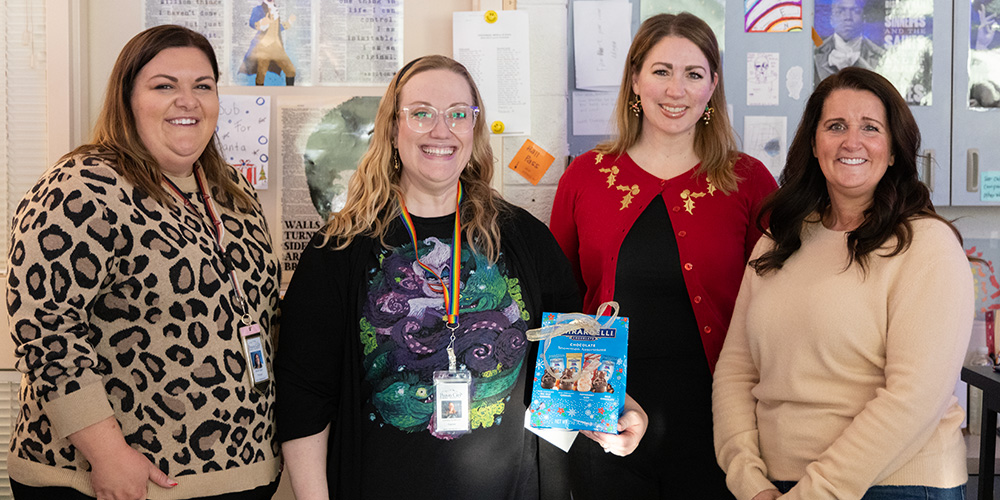
Every year in 8th grade Language Arts, students spend an entire term on materials that deal with the Holocaust. The goal is to learn from the past and to help make the future better. Larissa aims to expand their Holocaust Literature unit by adding a more contemporary novel, The Length of a String, by Elissa Brent Weissman. Larissa’s novel-based project will involve whole-class reading and group discussions while moving towards text-to-world connections, thus housing the reality of the Holocaust in terms students will better understand.
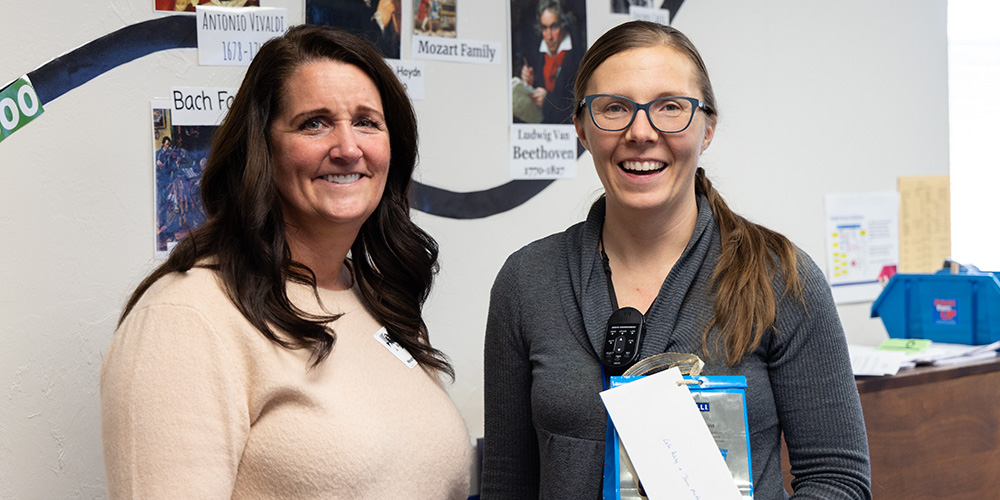
Xylophones are an excellent tool for students to play an instrument that reinforces their note-reading skills and builds music literacy, hand-eye coordination, and note and interval understanding. Regardless of age, all students benefit from learning to transfer note-reading skills from the page to the instrument.
Lela Ashby & Joan Matheny will use their grants to purchase mini-xylophone sets for each classroom. Students will play xylophones and read and play music displayed by the teacher to allow students to be creative and more musically literate through improvisation and composition activities.
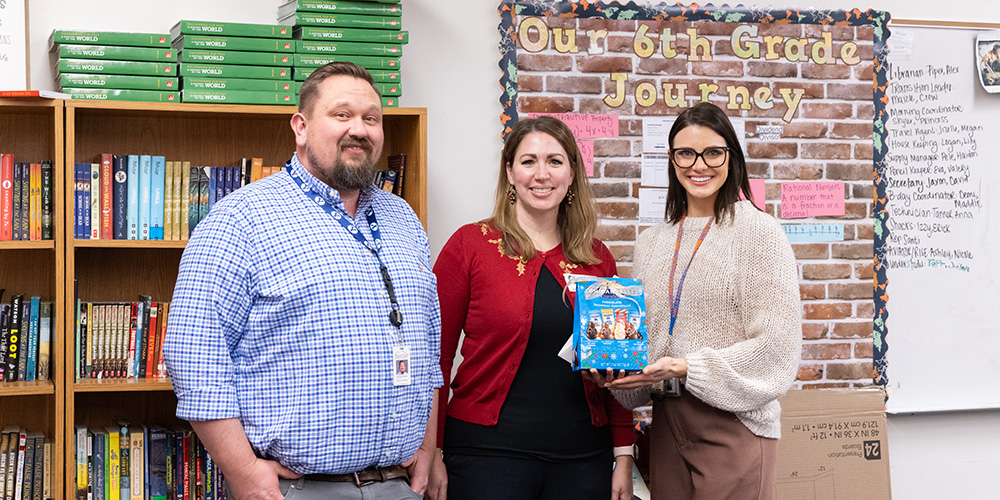
Amelia Earhart’s 6th grade social studies core focuses on world history, devoting time to researching and reporting on one historical figure in October. (One standard focuses on Renaissance thinkers, another standard covers significant revolutionaries, and one final standard reviews modern world leaders).
This project will integrate writing, art, and science and teach students about STEM leaders and inventors. Natalie asks her students to prepare an oral report to present while dressed as their chosen figure on Halloween– hence the unit title, “Wax Museum.” Natalie’s grant will also fund materials for their visual presentations, historically accurate costumes, and biographies and autobiographies for research purposes.
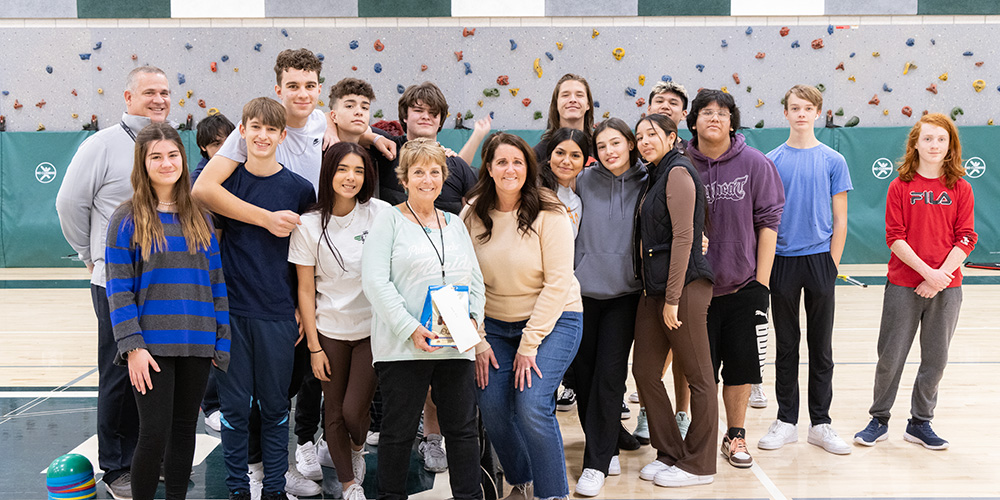
Wendy wants to ensure all students can learn physical skills through various lifetime activities, regardless of interest or background. To provide more equitable skill-building games for physically challenged students, Wendy plans to purchase ten corn hole game boards including Bean Bags and Carry bags to use in our PE classes. The ten boards include Corn-Hole boards, bean bags, a tic-tac-toe game, and a carrying case serving up to forty students regardless of location.
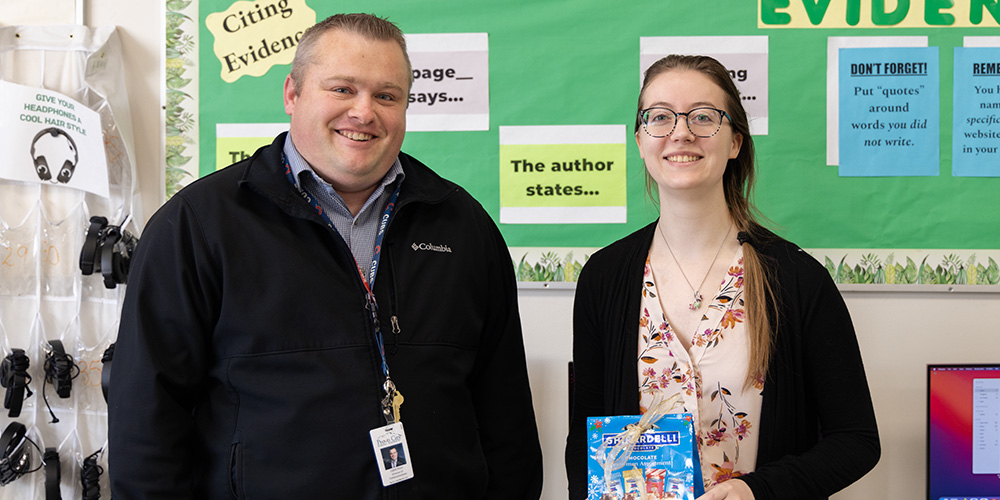
Jordan’s grant will provide teachers to reward students with items as positive reinforcements for academic and behavioral growth. These items include unique notebooks, color-changing mood pencils, bendable pencils, uniquely-shaped erasers, lanyards, fidget toys, stickers, small water bottles, pencil sharpeners, comic books, graphic novels, wired headphones, crafting kits, carriers, binders, bubbles, slime, puzzles, and many other miscellaneous party-bag toys.
Jordan notes that students are more engaged and motivated when given positive reinforcement and rewards. As a teacher at a Title I school, she recognizes that positive reinforcement not only helps them succeed academically but with their mental health, too.
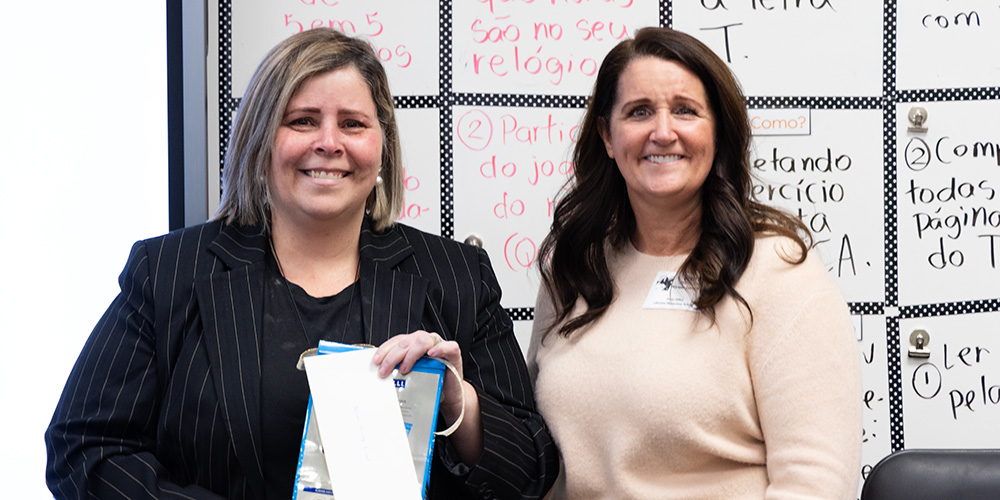
Since last year, Melissa’s worked on developing a phonics program for the DLI Portuguese Students. Melissa reports that since her previous year teaching, she’s worked on her Master’s degree in Curriculum and Instruction and communicated with an institute in Brazil that understands how to teach the peculiarities of the Portuguese language. After several hours of personal research, Melissa rewrote large portions of their phonics workbook. She seeks to purchase puppets and other puppet-building materials related to their updated workbook and a printer to print visual materials for each student. The real-world objects, coupled with her updated practice, will develop language proficiency.
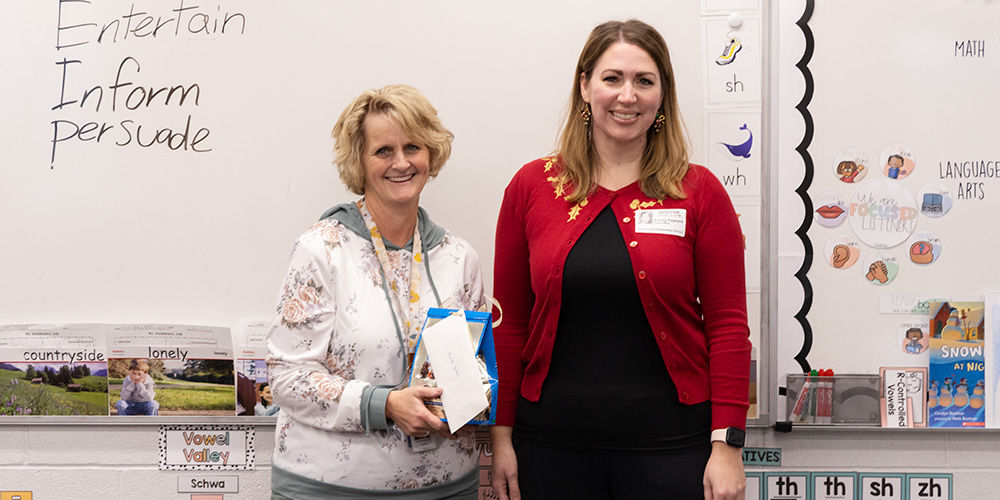
Some students are below grade level and feel overwhelmed and defeated when it comes to reading. Some need help accessing the curriculum due to their inability to decode words and read grade-level texts. Michelle wants to empower the students with the ability to read. She knows that if she engages the students in activities that support literacy in more fun and interactive practices, her students will find more excitement in learning to read and write.
Funding will provide students with various Decodable Readers aligned with the Science of Reading during their Literacy Block, creating hands-on and engaging centers through puzzles, word tiles, literacy board games, and more. The Centers support reading, writing, vocabulary skills and comprehension, and even math comprehension. Each student can use the decoders to access the curriculum at their current reading levels, improving their abilities to question, infer, connect, write, and create extensions without fear of frustration.
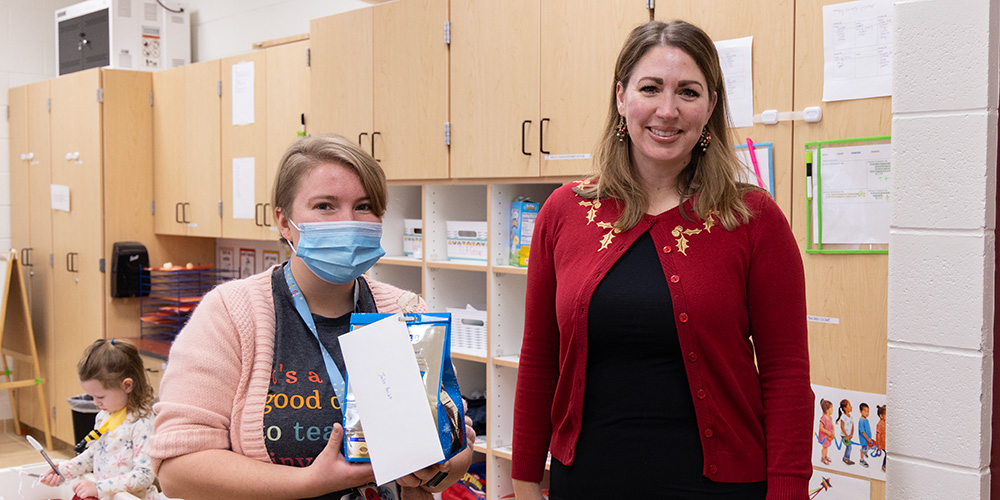
Julie teaches a classroom with students with and without disabilities, and as an inclusive classroom teacher, provides support for all students – not just those with Individualized Education Programs. Many of her students without disabilities also have unique needs.
Julie plans to purchase proprioceptive and large-motor, integrative sensory supplies to help create a sensory center for my classroom. In layperson’s terms, Julie is buying a mini tramp, a crash pad, a balance board, weighted lap pads, and other sensory materials.
Julie says that when her students are over or under-stimulated, “they sometimes turn into bulldozers, seeking physical stimulation.” (Great line!) Free play and sensory art activities allow students to feel wild and messy in appropriate ways (without getting into big messes or acting out).
Julie’s students will have access to materials to meet their own sensory needs. Teachers can use the materials to help prevent problem behaviors such as physical aggression. Therapists (both physical and occupational) will be able to use the materials to also address IEP goals with students on IEPs. Students without IEPs will be able to use the materials to help self-regulate.
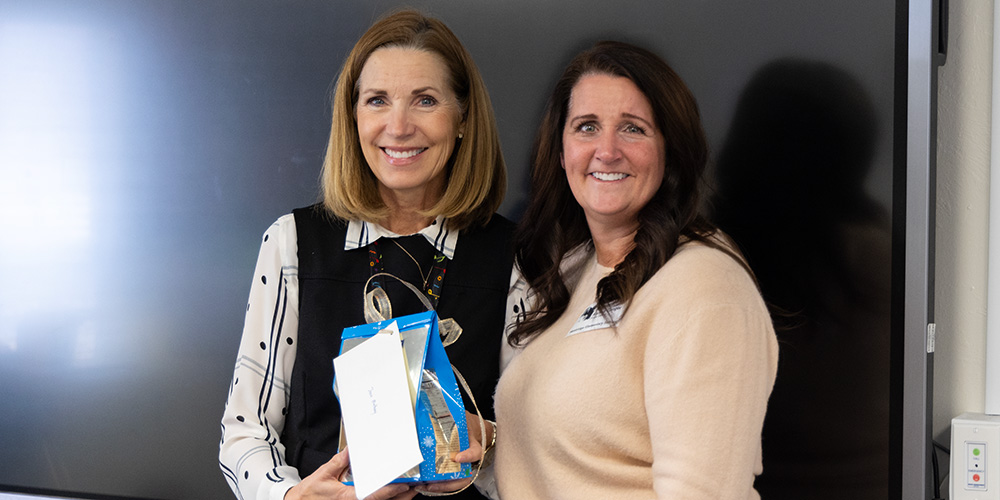
In the Provo City Music curriculum, 1st Grade students and beyond use felt music staves for demonstrating music notation and solfa pitches. They use “notes” made from felt, positioned on the staff’s lines and spaces, singing while touching the correct notes. Students use the felt staves to learn note names, relationships between notes and their pitches, and interval (hearing) training. It’s an effective music tool that is an essential part of the music curriculum used by our district– and unfortunately, Lakeview had no felt staves or notes until now.
Joan will purchase two classroom sets for Lakeview Elementary’s music classrooms, which are an essential part of the Kodaly music curriculum used by our district.
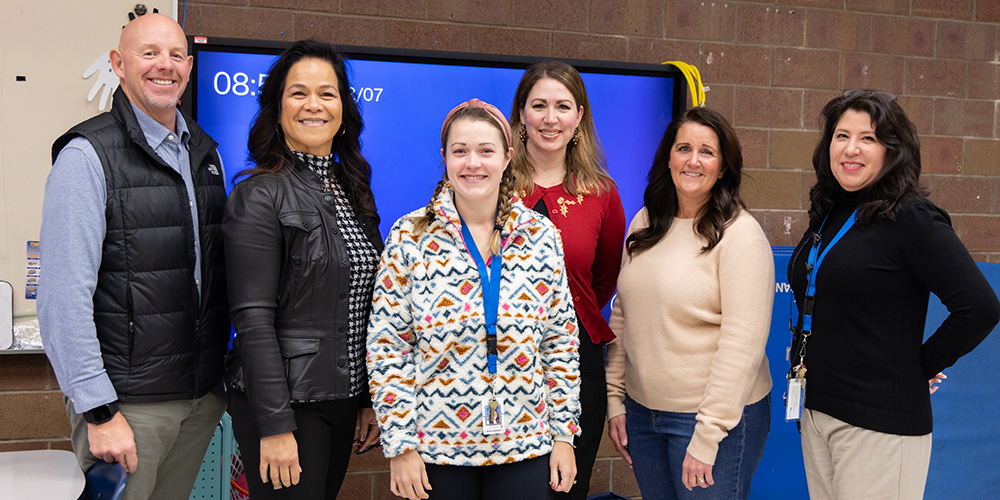
A significant portion of Special Education is preparing students for life after high school. Ellery wants to encourage her students to learn life skills to relate more easily with and access their community while developing independence. To better prepare her students, Ellery intends to provide opportunities to learn cooking skills, grocery shopping and spending money, public transportation usage, budgeting, and much more. The experiences will aid students in developing these life skills while offering opportunities as adults.
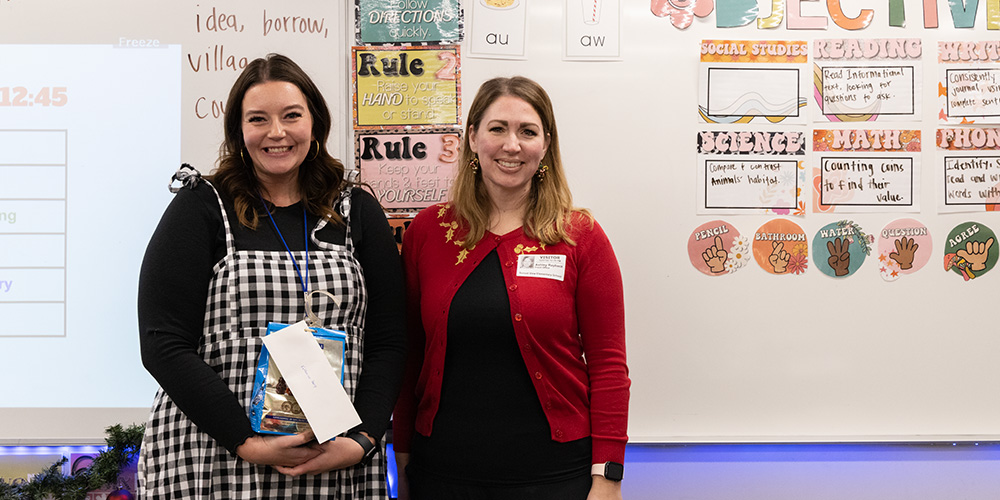
Katherine knows that hands-on experiences in the classroom, where students practice sharing and learning, aid their development in learning better coping mechanisms. After reading the data-supported literature, Katherine realized that STEM Bins could help build citizenship, culture, and camaraderie in her classroom.
Katherine is purchasing reusable stem items containing legos, tinker toys, magnets, arts, and puzzles for her students. Students will receive a STEM Bin at their table and practice using appropriate table talk, working to build and create projects alongside their peers.
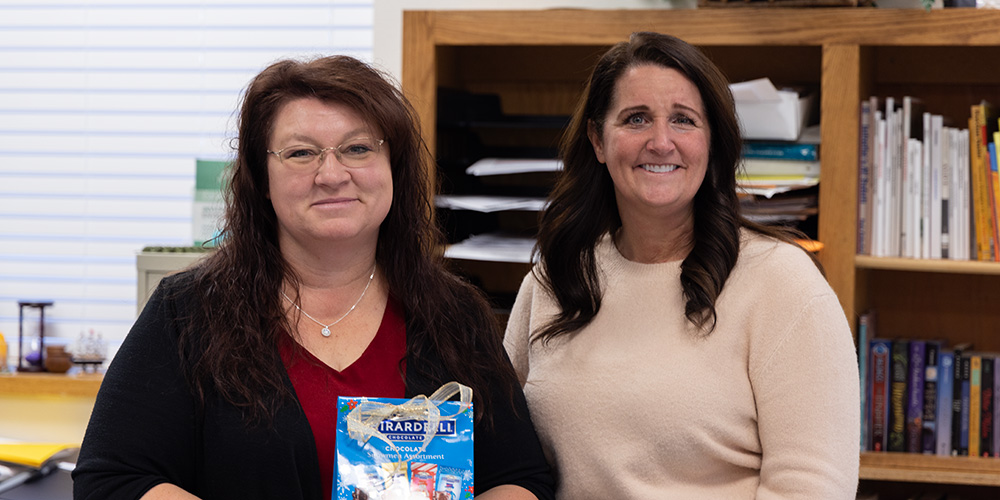
Gina developed a unit to teach my students about the Topaz Mountain Internment Camp in Delta, Utah, using primary and secondary sources, a guest speaker, and a field trip to tour the internment camp.
Gina will use the funds to pay for field trip transportation costs. Gina’s unit offers rich insight into Utah history, taking suburban students to rural Utah to experience history first-hand. The field trip acts as the linchpin to her unit. Gina is confident that the field trip will lead to more student engagement and improvements in the unit assessment.
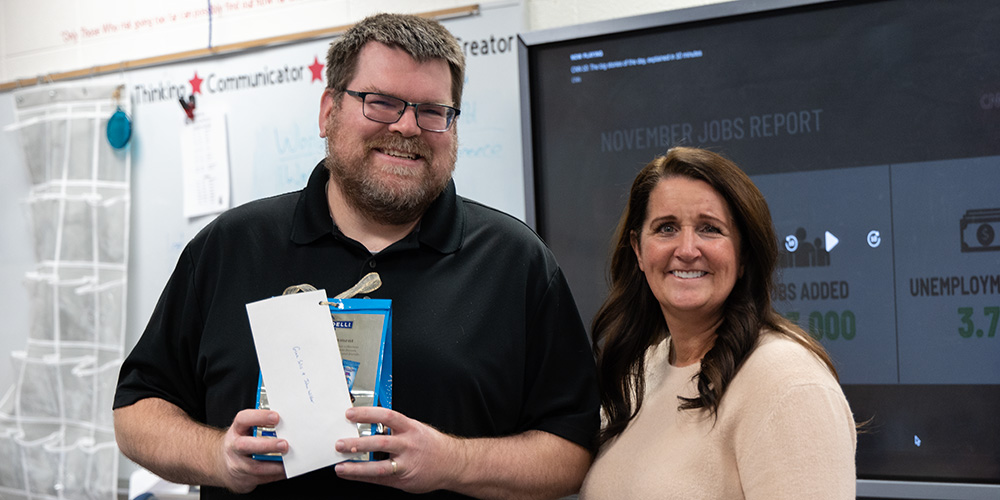
John believes that students should recognize the impact that treating groups of people as “Others” has historically had on minority communities– and his grant will cover that topic in spades. Students will visit the Japanese Internment Camp Museum in Delta, Utah, and use grant-covered supplies to create their Museum Exhibits. Students will take notes on historical content while examining how each exhibit conveys vital information.
For the past few months, we've been searching our schools for students to highlight for their work...
The next school board meeting will be held on Tuesday, December 10 The study session will begin at...
"David Young goes above and beyond when it comes to working with children as the Social Worker at...